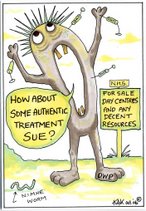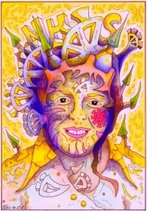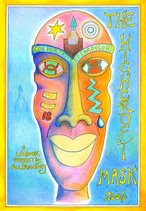
We are not surprised its falling off its perch since the planners and influencers over Labour took over from where Patient Choice may have guided far better . Some of the influencers were upper class circles of professors down south connected to MH charities and in the London areas and for sure they have a right to their view .
Patient's in mental health though have a human right to choice of therapy without it being imposed on them by undemocratic elites that Labour happen to know and have trusted ..
"Trust me I am a patient" John Reid's line from a July 2003 keynote speech was largely an abdicated position in mental health .. We think it still is . The choice mechanism is barely existent in MH .
The State cannot drive quality of therapies that recover people - Patients have to do that without the crushing monopoly of the NHS always in the way .. The NHS should be one area of choice and that is all .. It should stop being an idealised position furnishing more bureacarcy , more centralism and more State ..
CreditFor the Article Below Goes To PSYORG.COM
Evidence That Cognitive Therapy Is Of No Value In Schitzophrenia
The results of the review suggest that not only is CBT ineffective in treating schizophrenia and in preventing relapse, it is also ineffective in preventing relapses in bipolar disorder.
The review also suggests that CBT has only a weak effect in treating depression, but it has a greater effect in preventing relapses in this disorder.
The authors focused particularly on methodologically rigorous trials that compared CBT to a ‘psychological placebo' and also investigated the impact of ‘blinding', i.e. whether or not the people who assessed the patients knew if they were receiving active treatment or not. Both factors are considered essential before a drug treatment is approved for use in psychiatric disorders.
The authors noted that not a single trial employing both blinding and psychological placebo has found CBT to be effective in schizophrenia and surprisingly few well-controlled studies of CBT in depression.
"The results of this review are important because in March NICE re-approved CBT for use in all people with schizophrenia. The Government is also investing millions of pounds to provide CBT for depression and anxiety in 250 dedicated therapy centres across England," said Professor Laws. "Yet the evidence here is that the effectiveness of this form of therapy may be less than previously thought, to the point of being non-existent in schizophrenia."
The other authors of the paper are Professor Peter McKenna, Benito Menni Complex Assistencial en Salut Mental, Barcelona and Dr Damian Lynch, University of Glasgow.
More information: Cognitive behavioural therapy for major psychiatric disorder: does it really work? A meta-analytical review of well-controlled trials, Psychological Medicine, Cambridge University Press, doi:10.1017/S003329170900590X

.jpg)







No comments:
Post a Comment